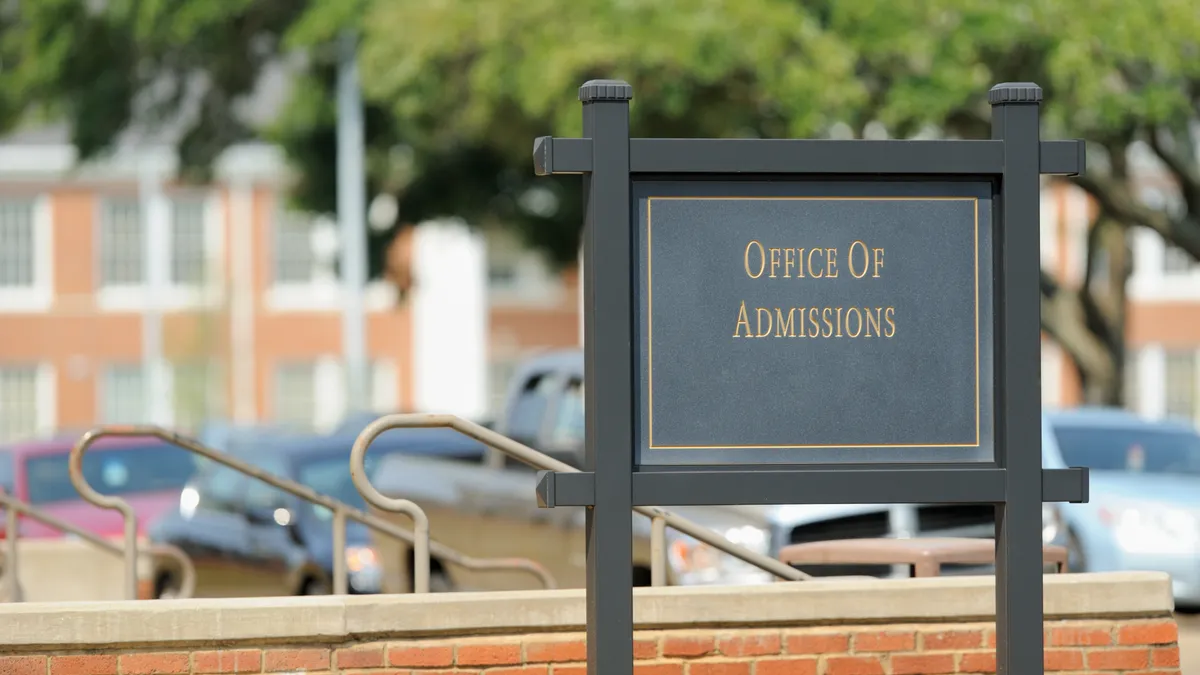Public elementary education caught on slowly in the United States throughout the 18th and 19th centuries. The idea that governments have the responsibility to provide high school education to their citizens came later. While free community college proposals have sparked a national conversation this year, many still see their chance of implementation as slim. But Undersecretary of Education Ted Mitchell said he believes the 21st century will bring expansion to public education on the “bookends” — universal pre-K and free community college.
“America’s College Promise is a part of a down payment on a broad future in which universal, publicly funded education is not just a K-12 endeavor but it is a pre-K through community college endeavor,” Mitchell said.
President Barack Obama announced his proposal for free community college in January. The federal commitment to America’s College Promise would be to cover 75% of the average cost of attending community college nationwide if states contributed the rest. States would also be expected to forego any cuts to higher education funding and allocate at least some of their money based on college outcomes. Finally, states would have to coordinate teaching and learning across high schools, community colleges, and four-year institutions to ensure students are prepared for transitions from one to the other.
Mitchell discussed the proposal during a panel at the Education Writers Association National Seminar Monday in Chicago. Joining him were Cheryl Hyman, chancellor of the City Colleges of Chicago; Sara Goldrick-Rab, a professor of educational policy studies at the University of Wisconsin-Madison; and Sandy Baum, a research professor at the George Washington University Graduate School of Education and Human Development.
Hyman is overseeing the launch of a new program that would offer Chicago Public Schools graduates free access to an associates degree. Obama mentioned the Chicago STAR Scholarship in his State of the Union address this January, just three months after that initiative was announced. Hyman expects the scholarship, which will cover tuition as well as books and other fees, to bridge financial barriers to higher education for CPS grads.
Critics have said that free community college will exacerbate the problem of undermatching, where high-achieving, low-income students limit themselves by applying to less-selective schools. But Hyman disagrees with the fundamental claim inherent in that criticism.
“We cannot afford to stereotype our community colleges as institutions only suitable for low-performing students because it is not their legacy, nor is it their future,” Hyman said.
Goldrick-Rab, from UW-Madison, pointed to the financial environment in which community colleges must try to survive — they get less public investment than four-year schools and less attention from philanthropists. With free community college, however, she thinks that might change.
Historically, community colleges haven’t benefited from a vocal political constituency, Goldrick-Rab said. To the extent that middle income families take advantage of the low-cost college degree, states will begin to feel the pressure from a diverse coalition advocating for quality and access.
“Regular families now have something to ask for. States and legislatures that don’t respond to this will be asked why,” Goldrick-Rab said. “This sets up a very different political dynamic.”
Baum, the lone critic of free community college on Monday’s panel, said she worries the existing price gap between two- and four-year institutions is already great and should not be made wider. She further criticized the political will to keep higher education proposals cost-neutral when, she said, schools need more resources.
A recent survey of community college leaders by Inside Higher Ed and Gallup Education found fewer than half of all college presidents believe initiatives for two years of free higher education will be implemented in their states. This cynicism was acknowledged Monday, but optimism generally prevailed. All four panelists believed the proposal alone has created positive debate across the nation, if only by deepening a conversation about college access and success.
Would you like to see more education news like this in your inbox on a daily basis? Subscribe to our Education Dive email newsletter! You may also want to read Education Dive's interview with ProctorU CEO Don Kassner on ID authentication and the future of digital assessment and distance education.
















